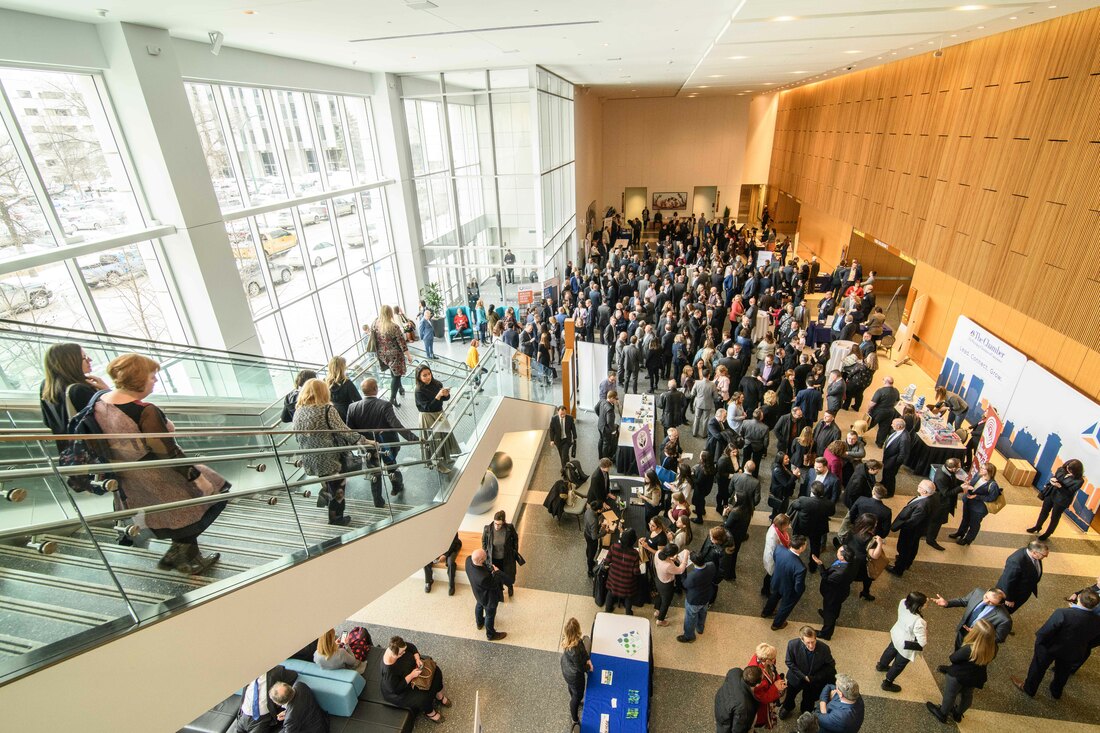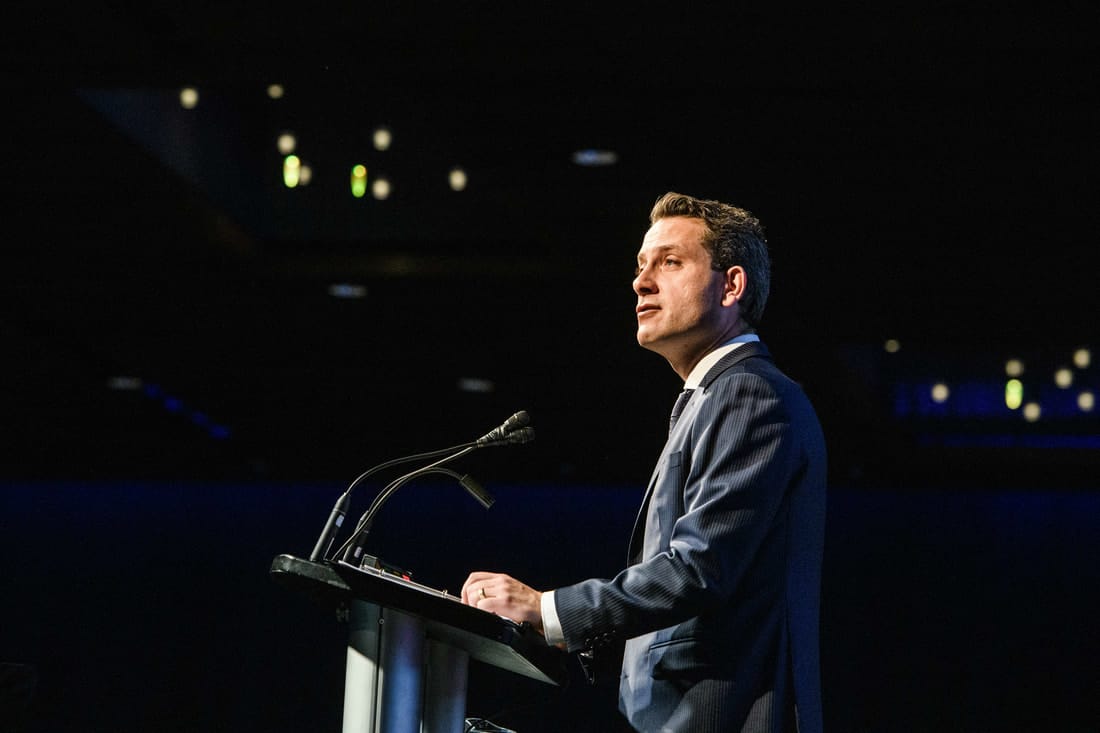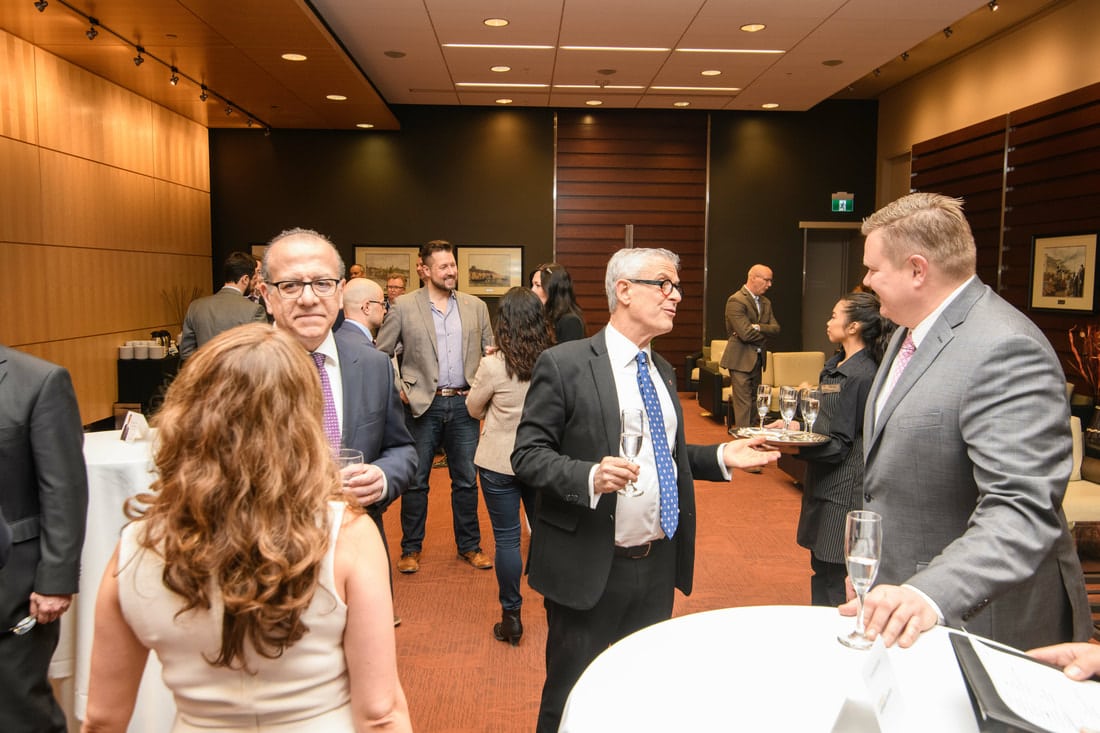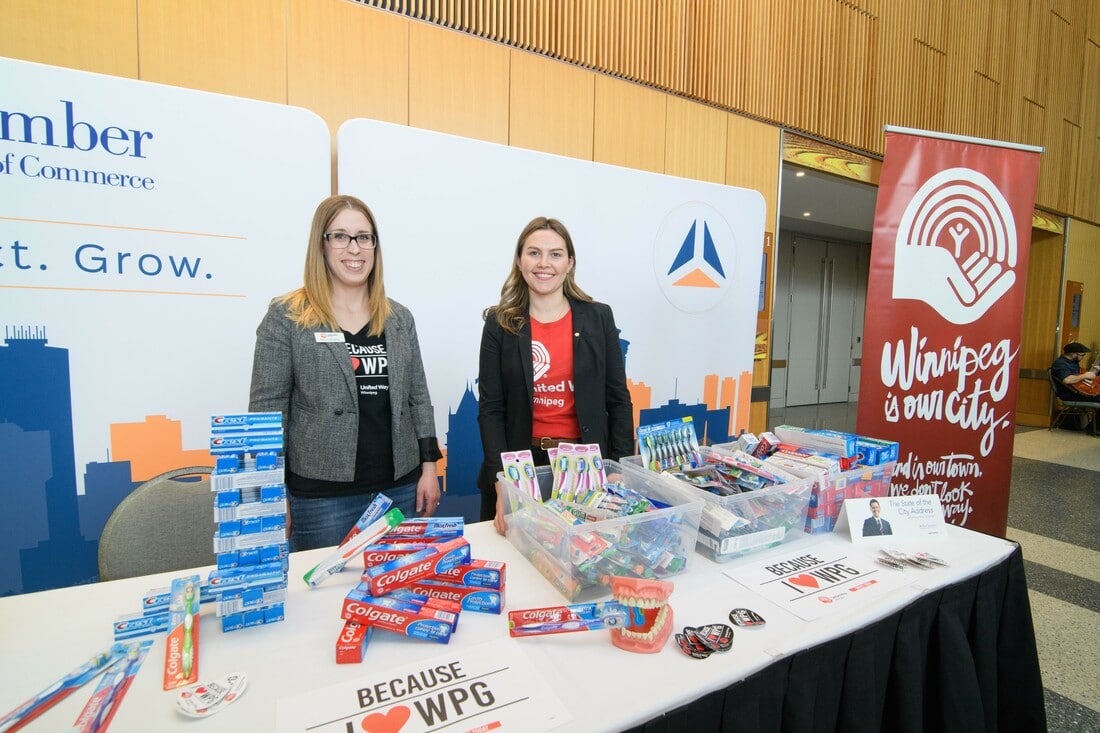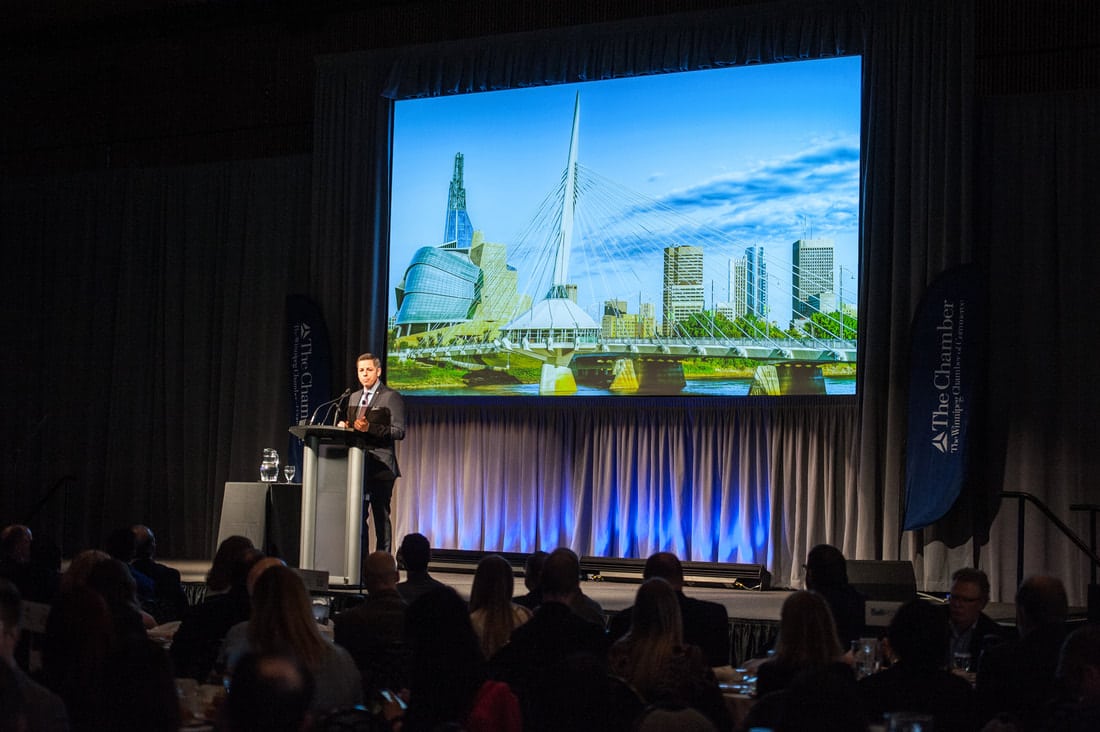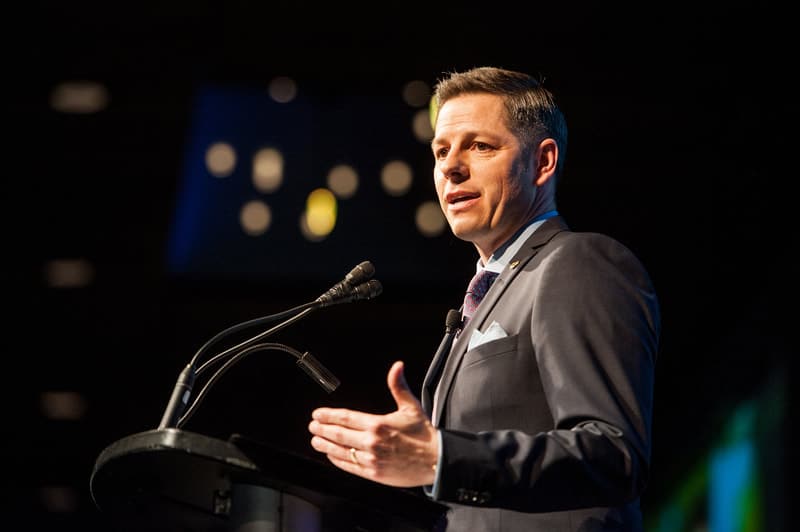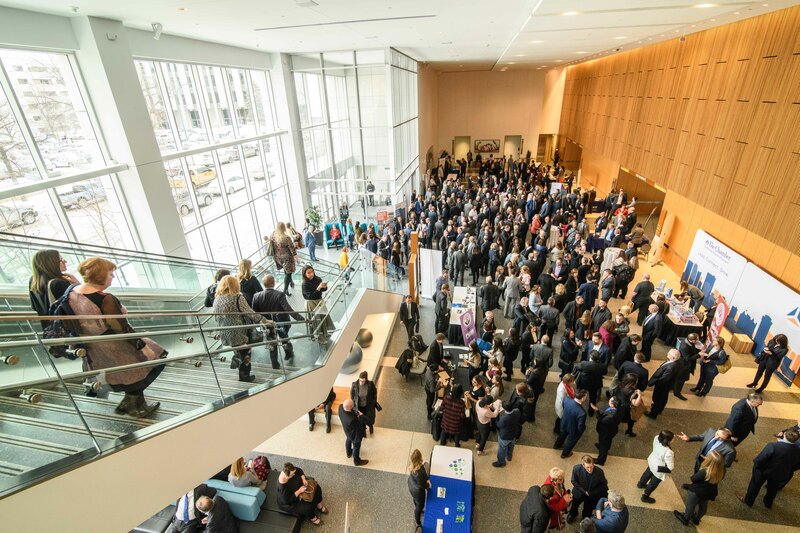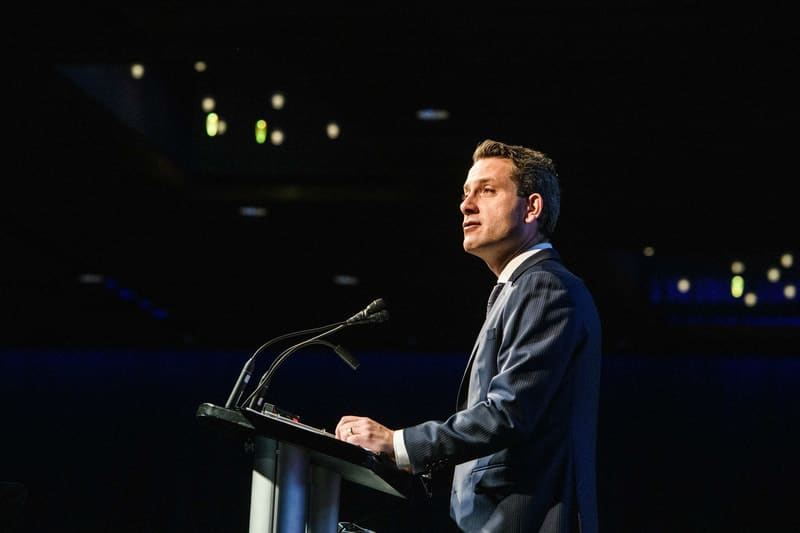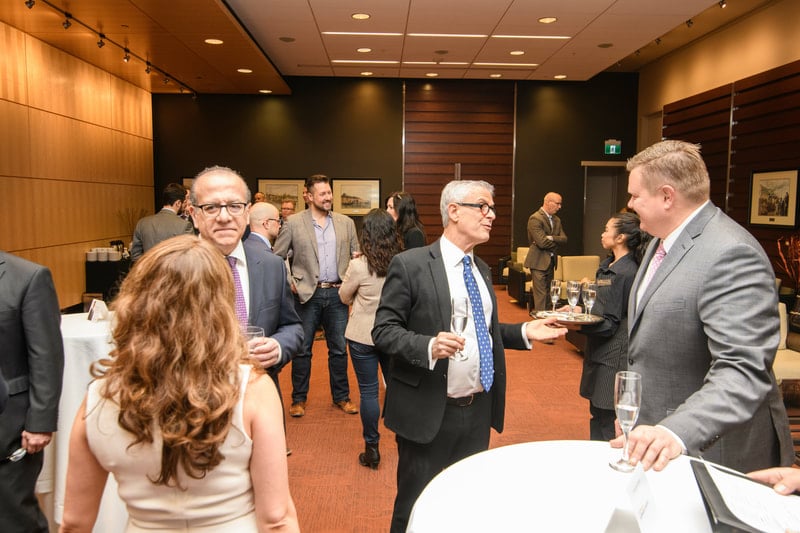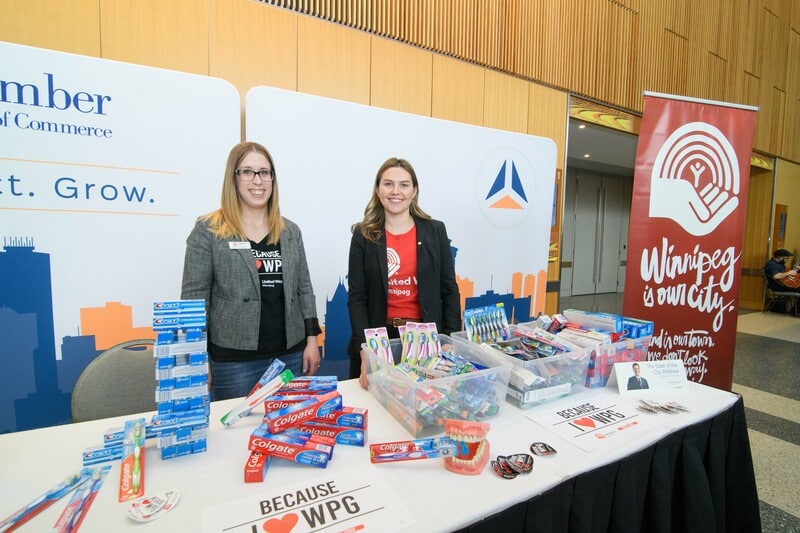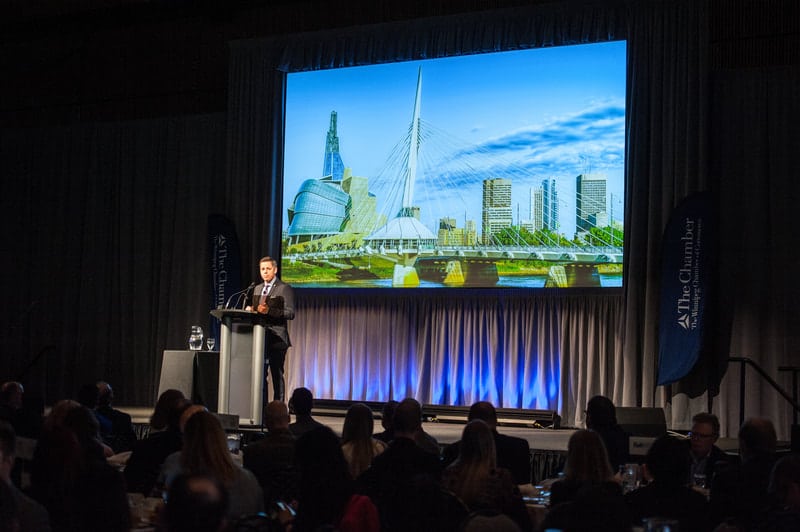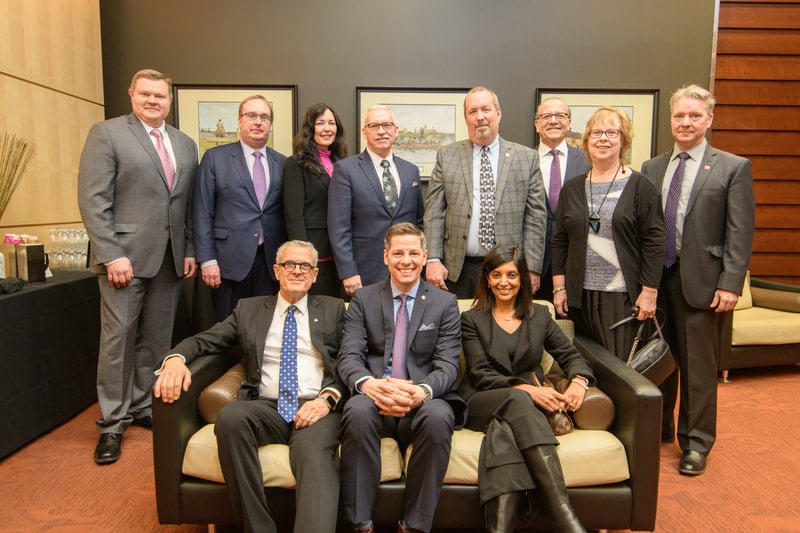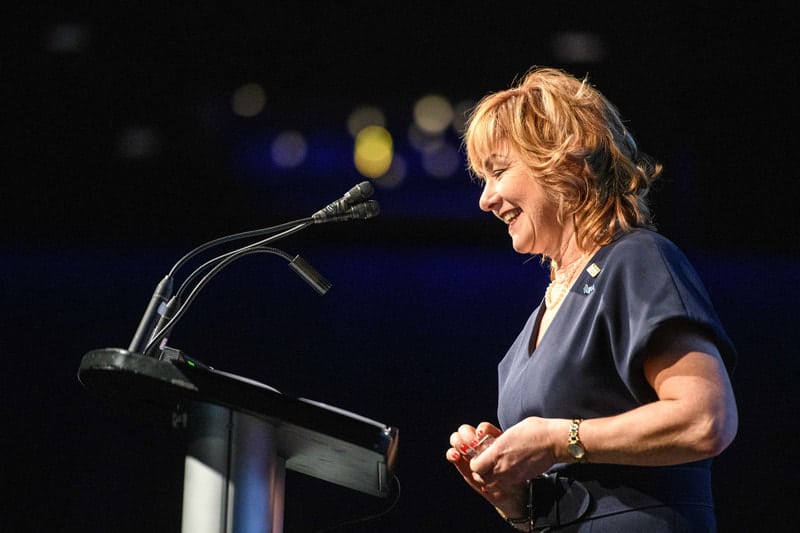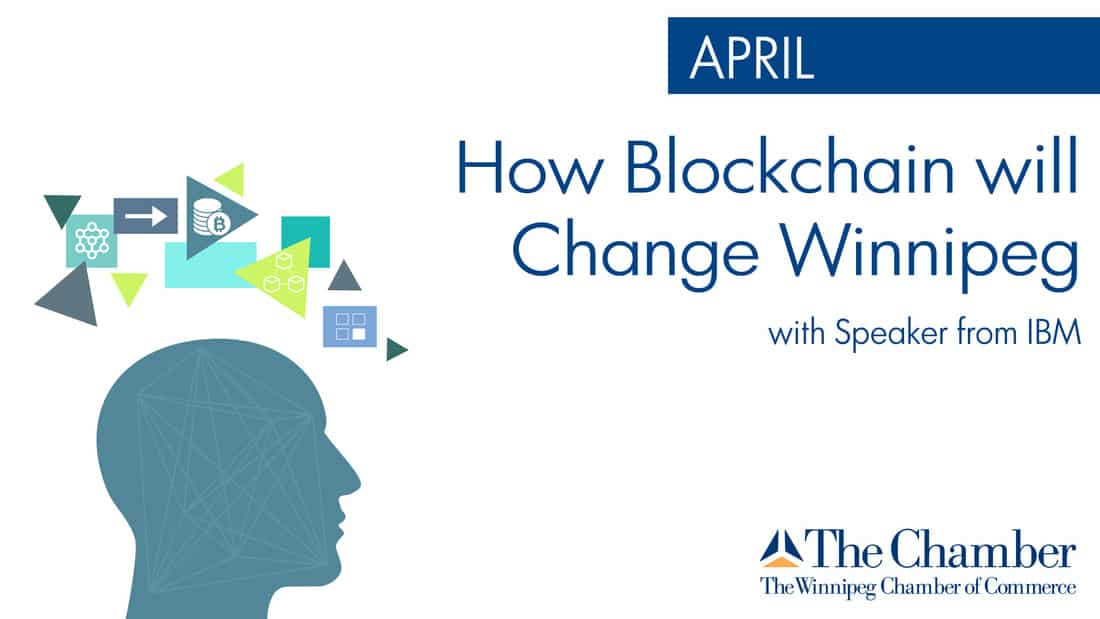On March 15, 2019, The Winnipeg Chamber of Commerce held its annual State of the City Address. Effectively a progress report on the health of the city across a number of different areas, the Address was Mayor Brian Bowman’s first since being re-elected in October 2018, and also came in the wake of freshly tabled municipal and provincial budgets for the upcoming year.
We’ve broken down Mayor Bowman’s entire 37-minute address, and here are the takeaways:
A century since sacrifice
Bowman began his address by recognizing that 2019 is a year of significance for Winnipeg, marking 100 years since the Winnipeg general strike of 1919.
“It highlighted one of Winnipeg’s embedded strengths; the extent to which many of us are willing to fight for our belief in what is fair.”
This year will also mark a century since water first began flowing from Shoal Lake into Winnipeg’s McPhillips Street reservoir, eventually being distributed as drinking water to the city of Winnipeg. Shoal Lake remains the sole source of Winnipeg’s drinking water, but Bowman implores residents to remember the price that was paid by others so that we could have it.
“It came at significant social and economic cost to members of Shoal Lake 40 [First Nation], whose community was cut off from the mainland, as part of establishing the aqueduct. This decision was made unilaterally, relying on colonial powers available to the government under the Indian Act.
“As Winnipeggers, we can never, ever forget where our water comes from.”
Bowman announced that Freedom Road – which will provide year-round access to Shoal Lake 40 and connect the First Nation to the Trans-Canada Highway – is set to open in the coming months.
By the numbers: Winnipeg’s growing population
Bowman reports that Winnipeg’s population is expected to reach nearly 778,000 people this year, growing by 69,000 citizens since 2014, or about 38 new residents every day.
Illustrating the significance of our growth, Bowman reveals that Winnipeg’s population grew by just 12,000 people between 1990 and 2000. From 2000 to 2010, it grew by 35,000 people. And in just seven years, from 2010 to 2017, it grew by 80,000 people.
Bowman also points out that between 1991 and 2006, immigration was the source of just nine per cent of Winnipeg’s population growth. From 2006 to 2016, it accounted for 90 per cent.
“We’re opening our doors to new Canadians, and in turn, they’re opening doors to greater opportunities for all of us.”
International human rights capital?
Continuing to build off of his newly appointed Human Rights Committee of Council, Mayor Bowman declared that he intends for Winnipeg to become an international leader for the protection and promotion of human rights.
The new committee was created to increase focus and priority on the City’s current work to support human rights, diversity, equity, peace, and inclusion. Bowman is also committed to establishing a newcomer welcome and inclusion policy, to enhance the lives of newcomers to Winnipeg by identifying ways that the City can better meet their distinct needs, and work to provide barrier-free access to City services.
“Over the coming years, I will be taking this message and vision to the world, and work to move Winnipeg closer to becoming an internationally recognized destination for human rights education, protection, and policy creation.”
Bowman also announced that he will be establishing a new Youth Advisory Council, which will allow the voice of Winnipeg’s youth to be better heard at City Hall.
Economy: Strong and steady
Moving into the freshly tabled City budget, Bowman starts with the good:
The proposed 2019 budget will reduce Winnipeg’s business tax from 5.14 per cent to 4.97 per cent, which Bowman says is a further step toward its eventual elimination.
Property taxes will continue to rise slowly, steadily, and predictably, by 2.33 per cent; the same annual increase as every year Bowman has been in office.
No new fees are proposed, no increases to residential sewer and water rates, frontage levy rates, or on-street parking rates, and more funding is being made available to upgrade and repair aging community centres.
Significant resources are being made available to improve transit safety, reliability and rider experience, and additional funding is proposed to support an enhanced snow clearing strategy, in consideration of Winnipeg’s growing active transportation network.
However, the budget, Bowman explains, was not without its challenges. The most significant of which was…
Bumpy road ahead
Bowman made clear he fully supports the provincial government’s efforts to eliminate its budget deficit, but was adamant it should not be achieved on the backs of Winnipeg’s tax payers.
He reiterated the city’s position it expected to receive $40 million more in capital funding from the province in 2018. To make up for the unanticipated gap, Bowman said he looked at three options: raise taxes, increase debt, or reduce the number of capital projects. The budget incorporated the latter, reducing spending on local and regional roads to its lowest level since 2014.
Bowman also said this move only underscores the need for Winnipeg to become more self-reliant and to engage in long-term planning. Developing a multi-year budget is a key step toward that goal, as it will force council to think beyond quick fixes, and to focus more on the next generation than the next election.
Finding the next ‘Waterfront’
Continuing with the theme of becoming more self-reliant, Bowman said Winnipeg needs to get back to making more relatively small investments that spark larger business and community development, using the flourishing of the once-derelict Waterfront Drive as a prime example.
Toward that end, he has asked Centreventure and Economic Development Winnipeg to work with other stakeholders to develop an inventory of land that is primed for strategic investment. Bowman also revealed that later this year council will review plans to finally demolish the old Public Safety Building and Civic Parkade to open up a key redevelopment opportunity in the Exchange District.
“It’s an area of the city representing a dynamic cluster of entrepreneurs, educators, and artists, a cluster helping to attract leading-edge industry to our city, an area to our city demonstrating to our young people it’s possible to do great things right here in Winnipeg.”
Now hiring: CAO, City of Winnipeg
Bowman revealed that while City CAO Doug McNeil made the decision earlier this year to retire at the end of April, he has decided to push that back to later in May, in order to be with the City for whatever flood response is required this Spring. McNeil helped to lead the City’s flood-fighting efforts during the flood of 1997.
The City will look to find its next CAO soon, and is set to begin the recruitment and selection process shortly.
Changes on the horizon for Winnipeg Police Service
This year’s budget proposes to invest $301 million into the Winnipeg Police Service, an increase of 3.4 per cent over the previous year.
This year also marks the final year of the existing Winnipeg Police Board’s strategic plan, and a new plan will be proposed and passed for the next five years.
Bowman stressed the critical importance of reviewing existing funding envelopes to identify ways to prioritize and reallocate existing resources in ways that can better meet today’s and tomorrow’s challenges.
Bowman said the Winnipeg Police Service is one of very few large police forces in Western Canada to include uncapped overtime in the calculation of pensionable earnings, and will continue to support its removal, indicating that on an annual basis, that change would make available an additional $1.5 million that could be prioritized by the Winnipeg Police Board into other areas of need.
Meth in Manitoba
Not tip-toeing around the subject, Bowman was blunt about the fact that a meth crisis is being felt here in Winnipeg, as well as across Canada.
“We can’t arrest our way out of the challenges we face. We need to better address some of the root causes of crime; poverty, homelessness, mental health and addictions. We need to put partisan ideologies aside when it comes to establishing supervised consumption sites, a support mechanism being used in cities across Canada and saving lives. When clinical evidence and medical experts confirm that supervised consumption sites are what Winnipeg needs, I will work to ensure the City is not a barrier. It’s simply too important. We need to be honest that what we’re currently doing to combat meth in Manitoba is simply not good enough.”

